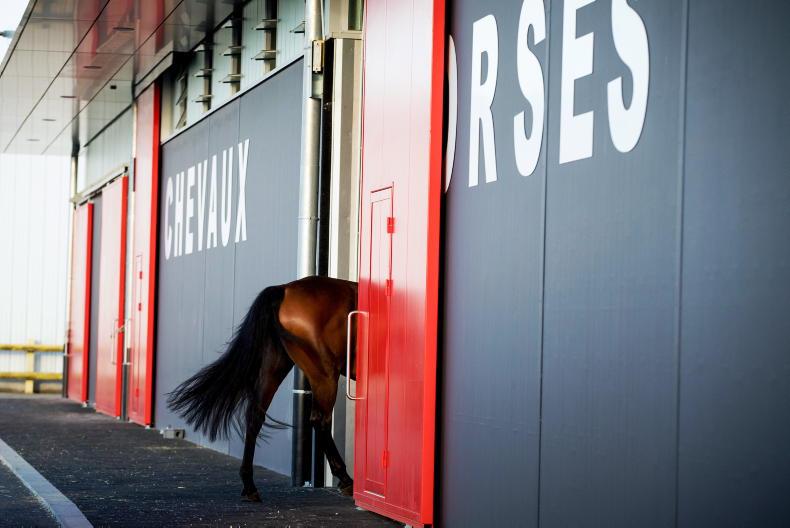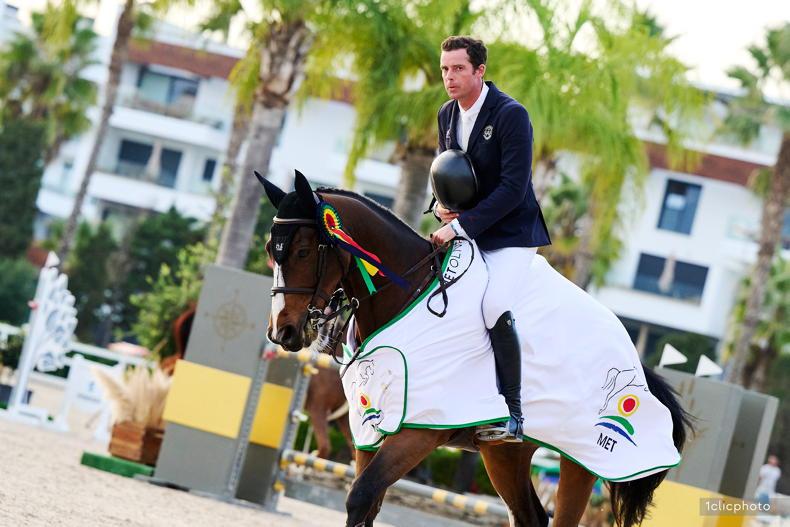BREXIT continues to make competing in Europe a major headache for British-based athletes as increased paperwork, spiralling cost and most damningly, the long delay at ports has got much worse since the Brexit transition period ended almost 15 months ago on December 31st, 2020.
“It is completely against horse welfare,” said Derry native David Simpson who is based in West Sussex, England. Simpson travelled from Dover to Calais in France on Wednesday while making his way to the two-star show in Bonheiden, Belgium and was delayed for up to six hours due to a late ferry crossing and paperwork checks in France.
“Before Brexit, the old health papers had four pages; the new one has 25 papers which all have to be stamped and signed by your vet. Some diseases they talk about on it haven’t been seen in Europe in 50 years. The thing that takes so long when you get to Calais, they have to photocopy every one of those forms for each horse, then wait for a vet to come and check them.
“Aside from paperwork, the fact our horses have to stand on the truck for four hours going nowhere, it is completely unfair on the animal; these horses are really fit and this waiting around is detrimental,” a frustrated Simpson told The Irish Field after finally reaching Belgium.
“I can understand horses that are travelling for the food chain, that there has to be really strict protocol on those, but horses travelling for competition – to make it pay and worthwhile to go the show, your horse has to arrive there is the best possible position so we look after them better than we look after ourselves.
“Our horses are put in the same category as chickens, pigs, beef cattle and sheep, and fruit, we are lined up beside lorries full of them. We are assigned into the same queue as to what is in the food chain. Our industry is so far ahead of the hoops they are making us jump through. Every protocol, rather than being for horse welfare, is actually detrimental to it.”
Simpson added that the costs have trebled since the UK left the EU, saying it was “crippling”, while he said the athletes received no support from any British or Irish federation. “Our federations have been useless to be honest, there is no support, no lobbying!”
FEI Veterinary Director Göran Ackerstöm told The Irish Field: “The FEI is fully aware of the ongoing challenges around Brexit and the movement of competition, breeding and sales horses between EU Member States and the UK, and continues to work with the community to secure the future of the European equine industry through safe and expedited horse movement between these countries.”
Working as part of the IHSC Task Force for Brexit and EU Animal Health Law, the FEI worked for over a year trying to find possible solutions, resulting in a 14-page dossier. The IHSC also formulated a digital passport solution to ensure the efficient cross-border movement of sport, racing and breeding horses from 2021.
“Although the Taskforce is no longer active after the EU AHL and Brexit has been implemented, the FEI continues to monitor the situation and lobby on the highest level of EU. However, we have not been asked to lobby on behalf of UK athletes, which is a national issue. Next week, I will present at a conference on horses in Saumur (FRA) under the French Presidency of the EU and will use the opportunity to address the difficulties and the need to find a way forward with EU officials as well as the French ministry of Agriculture,” said Göran Ackerstöm.
Paperwork disaster
Five-star British event rider Gemma Tattersall warned her fellow competitors to double check all paperwork stamped by the officials after she had to leave one horse at the port in Calais following an incorrect stamp on the horse’s carnet before leaving the UK.
A carnet is an internationally recognised document used for a temporary import/export and was introduced to the UK from January 1st, 2021.
Tattersall was told she would have to return to the UK with the horse and have the carnat stamped properly before being allowed continue into the EU. Detailing the ordeal on her Facebook page, Gemma said: “For me, taking all five horses in the big truck all the way back to UK just wasn’t an option for my horses. We realised the only option was not to take the five-year-old to the show and to get her collected from Calais.”
By the time she left Calais, the horses had been on the lorry for 15 hours, while it normally takes nine hours door to door to get to the show.
“So what I want to say to everyone who wants to travel to the EU is, make sure you know exactly where that stamp has to be and check that they actually do it, because none of them care about the fact that it’s your livelihood and that you have live animals on the lorry. It makes me so incredibly sad that we cannot just go to these shows anymore without a massive amount of cost and hassle,” Tattersall said.


 This is a subscriber-only article
This is a subscriber-only article
 It looks like you're browsing in private mode
It looks like you're browsing in private mode









SHARING OPTIONS: